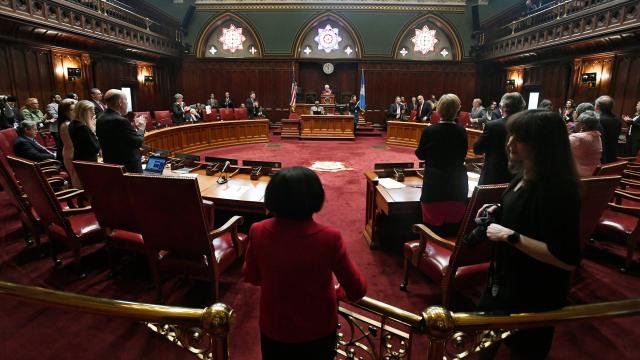States around the US are considering legislation to preserve the net neutrality protections that were recently repealed by the FCC, but Connecticut won’t be one of them. That’s because Republican state senators there used a procedural technicality to kill one such piece of legislation in committee.
Last week, Connecticut’s Energy and Technology Committee took up consideration of a bill that would have given the state the authority to regulate its own internet – a first step toward reinstating the type of protection against internet fast lanes that the FCC voted to destroy last year. But Senator Paul Formica, the Republican co-chairman of the committee, elected to employ a rule that ensured the bill wouldn’t get a proper vote.
According to the Connecticut Post, Democrats have a majority in the overall committee, but on the Senate-side, it’s tied. Formica used his authority to require a vote among the senators before it could be considered by the representatives in the House. The two Senate Democrats and two Senate Republicans were split along party lines, so the Republicans got their way. A tie vote meant the legislation would not be able to advance.
Democratic Senator Gary Winfield told the Post that this kind of tactic was “highly unusual” and he lamented the fact that the bill won’t get a fair shot at an up-or-down vote.
Senate Majority Leader Bob Duff supplied a statement to WNPR saying that “States like Oregon and Washington have already passed net neutrality protections on a bipartisan basis,” and that it was a shame that “Senate Republicans here in Connecticut chose to stand with big business and President Trump instead of the people of our state.”
For their part, Republicans argued that regulating the internet is a federal issue and they were just saving the state the hassle of fighting inevitable lawsuits.
It’s true that the fight for net neutrality in the US is a clusterfuck of competing legal actions at the moment. At least 23 State Attorneys General are suing the FCC over its decision to repeal Title II protections. Oregon and Washington have passed their own net neutrality laws and five other states have used executive orders to preserve the open internet. Massachusetts is currently considering its own net neutrality law. And all the while, competing bills are being debated in the US Congress.
The FCC’s net neutrality repeal included a provision blocking states from creating their own regulations, but whether that will hold up in court is an unsettled question. Generally, it’s not a practical idea for states to have competing rules for ISPs because the internet is borderless. The ideal situation is for Congress to just make Title II protections federal law. But in the meantime, fights on the state level are at least fuelling the urgency for that sort of broad legislation to be given priority. And the more this drags out, the more likely it could become an election issue for Republicans.
[Connecticut Post via The Hill]
